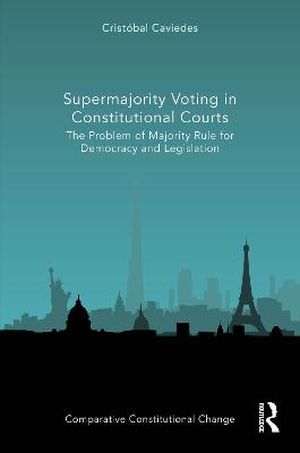
This book challenges the wide use of majority rule in many constitutional courts for declaring statutes unconstitutional, and argues that these courts should rather perform constitutional review by using supermajority rules. Considering that constitutional courts often tackle hard moral issues, it is questionable whether a bare majority of judges should suffice for settling them, especially considering these courts’ counter-majoritarian nature. Further, the wide use of majority rule for checking the constitutionality of legislation may increasingly risk their reputation. Such a concern is developing in the United States, following a series of Supreme Court decisions. This book argues that majority rule is unjustified in constitutional review. This means that, in constitutional review, considering majority rule’s traits, there are no decisive reasons for using this voting rule over other voting rules. Additionally, the book argues that, when checking the constitutionality of legislation, constitutional courts should replace majority rule with supermajority rules. Thus, for declaring statutes unconstitutional, it is argued that more than 50% of the judges present plus one judge present should be needed.
This book will be of interest to academics, researchers, and policy-makers working in the areas of Constitutional Law and Politics.